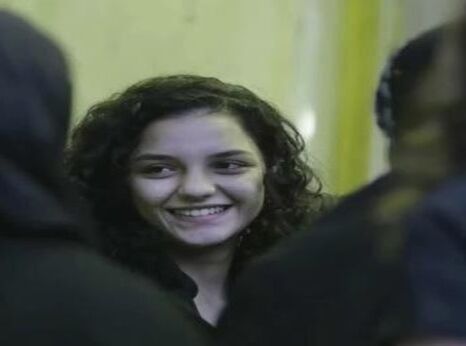Human rights activists detained for a third time

On 22 June 2020, Sanaa Seif was waiting outside the Tora Prison Complex in Cairo to receive a letter from her arbitrarily detained brother, Alaa Abdel Fattah. Her mother, Laila Soueif, and sister, Mona Seif, were with her. A group of women approached the family and beat them with sticks, tore their clothes, dragged them onto the ground and stole some of their belongings. One policeman reportedly pushed Laila Soueif towards the assailants, while another ordered the assailants to “take them outside [the waiting area]”. The assault left visible marks on the women’s bodies according to photos examined by Amnesty International.
Sanaa Seif’s detention has been renewed twice in her and her lawyers’ absence, denying her the right to challenge the lawfulness of her detention in violation of Egypt’s obligations under the International Covenant on Civil and Political Rights. Both times, Sanaa Seif was transferred to the prosecution's building, but not actually brought in front of the prosecutor or allowed to see her family or lawyers.
Prison visits, which had been suspended for five months following the COVID-19 outbreak, resumed in August 2020 with some restrictions in place. Prison authorities allowed Sanaa Seif’s relatives to deliver a letter for her on 12 July 2020. On 16 August 2020, prison authorities allowed her sister to deliver medicine and food but did not allow the entry of books and a radio.
Sanaa Seif and her family have suffered years of harassment and intimidation for their human rights activism. On 18 March 2020, Laila Soueif, Mona Seif, Sanaa’s aunt Ahdaf Soueif and university professor Rabab el-Mahdi were arrested by security services in front of the Cabinet building in Cairo after they stood in peaceful protest on a pavement demanding the release of prisoners over fears of a COVID-19 outbreak in the country’s overcrowded prisons. A prosecutor accused them of “inciting a protest,” “disseminating false information” and “possession of material disseminating false information”. He then ordered their release pending investigations on bail of 5,000 Egyptian pounds (around US$320). Although they made the bail payment the same day, they remained in detention overnight without legal grounds. On 19 March 2020, the authorities transferred Laila Soueif to the SSSP, where a prosecutor ordered her release on bail of 3,000 Egyptian pounds (around US$190). All four were released that night.
Sanaa Seif is a human rights activist and film editor. Sanaa Seif, human rights defender Yara Sallam and 20 others were arrested on 21 June 2014 in the Cairo suburb of Heliopolis, after a demonstration was dispersed by security forces in the area. They were charged with a string of offences, including “taking part in an unauthorized demonstration that endangered public order and security”, “vandalizing property”, “making a show of force in order to terrify and threaten the lives of passers-by”, and “participating in a gathering of over five people in order to disturb the public order and commit crimes”. Under the Law Regulating the Right to Public Gatherings, Processions and Peaceful Protests (Law 107 of 2013), protest organizers must submit their plans to the authorities, who have wide powers to cancel or reroute proposed demonstrations. On 26 October 2014, a Cairo Misdemeanour Court sentenced Sanaa Seif to three years' imprisonment, followed by three years of probation, a fine of 10,000 Egyptian Pounds (around US$630 at the time), and the payment of compensation for the damages caused. This sentence was later reduced on appeal on 28 December 2014 to two years' imprisonment and a two-year probation. On 23 September 2015, Sanaa Seif was released following a presidential pardon. In a separate case, a Misdemeanour Court in Cairo sentenced her to six months in prison for insulting the judiciary on 4 May 2016. On 15 November 2016, Sanaa Seif was released from prison after serving the six-month sentence.